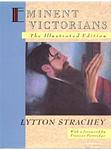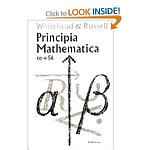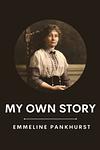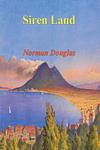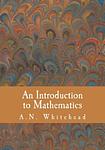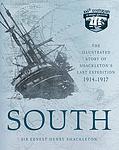The Greatest British "Nonfiction" Books From 1910 to 1919
Click to learn how this list is calculated.
This list represents a comprehensive and trusted collection of the greatest books. Developed through a specialized algorithm, it brings together 286 'best of' book lists to form a definitive guide to the world's most acclaimed books. For those interested in how these books are chosen, additional details can be found on the rankings page.
Genres
Countries
Date Range
Reading Statistics
Click the button below to see how many of these books you've read!
Download
If you're interested in downloading this list as a CSV file for use in a spreadsheet application, you can easily do so by clicking the button below. Please note that to ensure a manageable file size and faster download, the CSV will include details for only the first 500 books.
Download-
1. Eminent Victorians by Lytton Strachey
"Eminent Victorians" is a biographical work that profiles four influential figures from the Victorian era. The book provides an in-depth look into the lives of Cardinal Manning, Florence Nightingale, Thomas Arnold, and General Gordon, exploring their respective contributions to British society during the 19th century. Through these portraits, the book offers a critical and often satirical analysis of Victorian values, institutions, and moral attitudes, challenging the idealized narrative of the era.
-
2. The Problems of Philosophy by Bertrand Russell
This book is an introduction to the central issues of philosophy, discussing topics such as reality, existence, knowledge, freedom, and ethics. It seeks to promote critical thinking and skepticism, encouraging readers to question their own beliefs and the world around them. The author uses clear and accessible language to explain complex philosophical concepts, making it an ideal starting point for those new to philosophy.
-
3. On Growth and Form by D'Arcy Wentworth Thompson
"On Growth and Form" is a landmark work that explores the science of biology from a mathematical perspective, emphasizing the patterns and geometry found in living organisms. The book discusses how physical and mathematical laws influence the way that organisms grow and develop, and how different species exhibit similar patterns of growth. It also touches on how these principles apply to the structure of the universe and the patterns found in nature. This work is considered a foundational text in the field of mathematical biology.
-
4. The Principia Mathematica by Alfred North Whitehead, Bertrand Russell
The Principia Mathematica is a three-volume work on the foundations of mathematics, written with the goal of deriving all mathematical truths from a well-defined set of axioms and inference rules in symbolic logic. The authors aim to show that mathematics is a development of logic and avoid any hidden assumptions. The work covers topics like class theory, relation theory, and quantity theory, and it is known for its rigorous and meticulous approach.
-
5. Armenian Atrocities: The Murder of a Nation by Arnold Toynbee
This book provides a comprehensive historical account of the Armenian genocide that took place during World War I. The author meticulously documents the systematic extermination of the Armenian people by the Ottoman Empire, using a variety of sources including eyewitness accounts, diplomatic reports, and official documents. The book also explores the international response to the genocide and the subsequent denial and cover-up by the Turkish government.
-
6. The Economic Consequences of the Peace by John Maynard Keynes
This book is a critique of the Treaty of Versailles, written by a British economist who was part of the British delegation to the peace conference. The author argues that the harsh reparations and economic measures imposed on Germany after World War I were unfair and would lead to economic instability and another war. He suggests that a more just and economically sound approach would have been to rebuild Germany and integrate it into the global economy, rather than punishing it.
-
7. My Own Story by Emmeline Pankhurst
"My Own Story" is an autobiography that chronicles the life and work of a prominent leader in the British suffragette movement, detailing her tireless struggle for women's voting rights in the early 20th century. The narrative offers a personal account of the political and social challenges faced by women activists, including the militant tactics employed, such as hunger strikes and civil disobedience, which often resulted in imprisonment. The author passionately articulates the motivations behind her activism, the sacrifices made, and the impact of her efforts on the eventual extension of suffrage to women, providing a compelling insight into the history of the fight for gender equality.
-
8. Siren Land by Norman Douglas
"Siren Land" is a travelogue that delves deeply into the rich cultural and historical landscape of southern Italy, particularly the region around the Bay of Naples. The author weaves personal experiences and observations with classical myths and local folklore, painting an evocative picture of the area's enchanting beauty and its enduring allure. The narrative is imbued with reflections on the region's Greek and Roman past, exploring the remnants of ancient civilizations and the seductive power of the land that has captivated travelers for centuries, much like the mythical sirens who once were said to lure sailors to their doom with their irresistible songs.
-
9. An Introduction to Mathematics by Alfred North Whitehead
This book serves as a comprehensive guide to the fundamental concepts and principles of mathematics. It provides an in-depth overview of different mathematical concepts, including algebra, geometry, calculus, and logic, and their applications in various fields. The author makes use of clear and concise language, making the complex world of mathematics accessible to novices. The book also discusses the historical development of mathematics, its philosophical aspects, and its role in the advancement of human civilization.
-
10. The Journal Of A Disappointed Man by W. N. P. Barbellion
"The Journal of a Disappointed Man" is a profoundly introspective diary that chronicles the personal struggles, reflections, and daily life of a man grappling with his ambitions, relationships, and the harsh realities of his deteriorating health due to multiple sclerosis. Written with raw honesty and sharp wit, the journal entries delve into the author's innermost thoughts and feelings, revealing his deep frustrations, intellectual pursuits, and his poignant quest for meaning in the face of an incurable illness and the inevitability of death. The diary is not only a window into the author's soul but also a commentary on the human condition, making it a timeless exploration of despair, hope, and the pursuit of understanding one's purpose.
-
11. Small Talk At Wreyland by Cecil Torr
"Small Talk at Wreyland" is a collection of essays that provide a detailed and charming account of life in Wreyland, a small hamlet in Devon, England. The author compiles notes, anecdotes, and family documents to paint a vivid picture of rural English life in the late 19th and early 20th centuries. The book captures the customs, conversations, and characters of the area, offering insights into the social history and traditions of the time, and preserving the memory of a way of life that has since changed dramatically.
-
12. South by Ernest Shackleton
"South" is a gripping account of an ill-fated Antarctic expedition led by a brave explorer. The journey takes a disastrous turn when their ship gets trapped and eventually crushed by ice, forcing the crew to abandon ship and embark on a harrowing journey over sea and land in a desperate bid for survival. The book is a testament to the crew's indomitable spirit and the leadership that kept them alive against all odds.
Reading Statistics
Click the button below to see how many of these books you've read!
Download
If you're interested in downloading this list as a CSV file for use in a spreadsheet application, you can easily do so by clicking the button below. Please note that to ensure a manageable file size and faster download, the CSV will include details for only the first 500 books.
Download